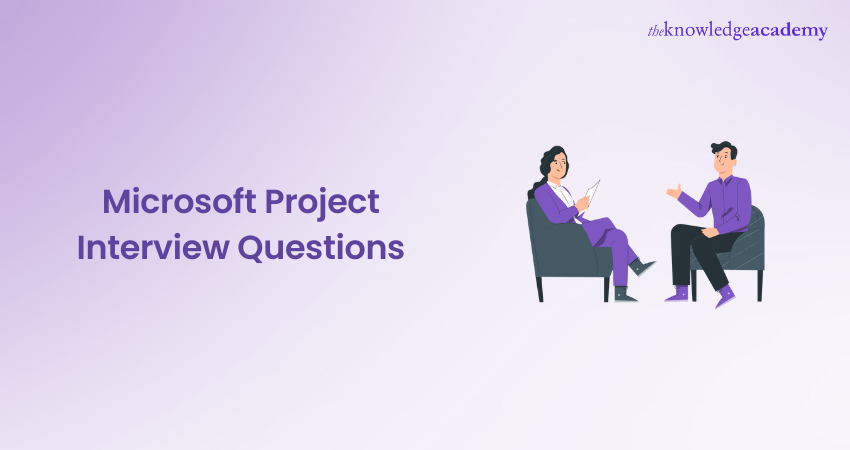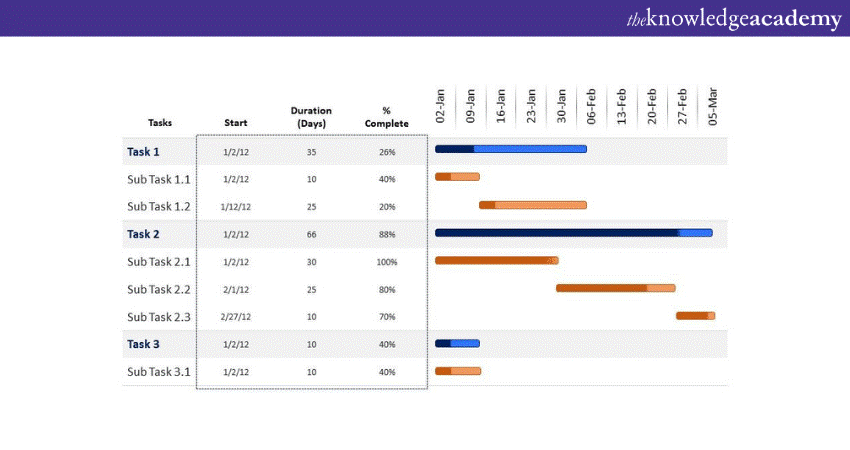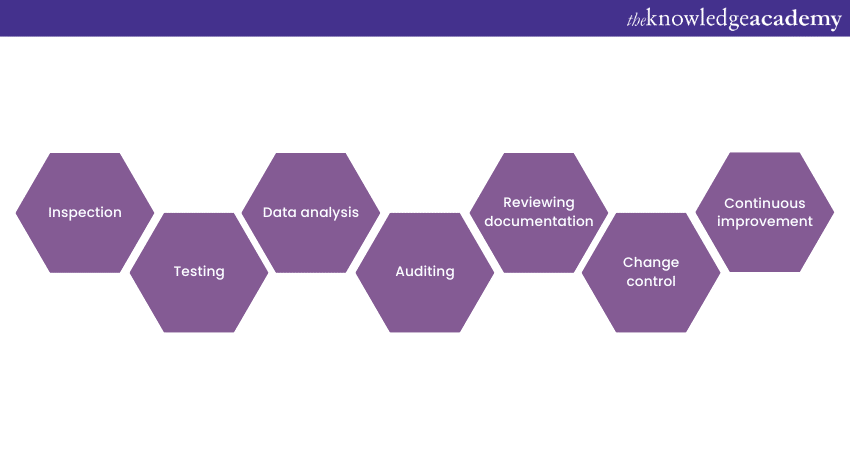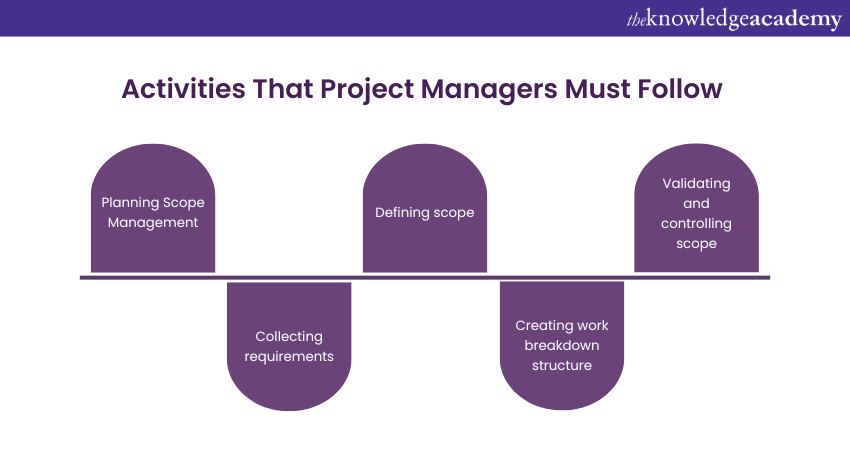We may not have the course you’re looking for. If you enquire or give us a call on +47 80010068 and speak to our training experts, we may still be able to help with your training requirements.
Training Outcomes Within Your Budget!
We ensure quality, budget-alignment, and timely delivery by our expert instructors.

Are you planning on appearing for the MS Project Management interview but don’t know how to prepare? If so, then consider preparing some Microsoft Project Interview Questions and answers beforehand. Preparation is key, and knowing the right questions can make all the difference.
Have you ever wondered what sets successful candidates apart during interviews? It’s their ability to confidently tackle both basic and complex questions with ease. Are you ready to respond confidently to Microsoft Project Interview Questions? Let’s delve into some essential topics to ensure you're thoroughly prepared.
Table of Contents
1) Basic MS Project Interview Questions
2) Technical MS Project Interview Questions
3) Behavioural MS Project Interview Questions
4) General MS Project Interview Questions
5) Conclusion
Basic MS Project Interview Questions
Are you a candidate who has just graduated and is looking for a high-paying job? If yes, then these basic MS Project Interview Questions are for you. Interviewers might also ask experienced candidates these questions. Therefore, it is better to get prepared for anything coming your way. So, let’s have a detailed look at these basic questions:
1) What is Summary Task, and Where can You Find it in MS Project?
A summary Task represents a group of tasks and activities included within a project. It helps organise tasks in order and predict their duration and length. Summary Task can be found under the Context menu -> Insert by clicking and dragging -> Summary.

2) Mention the Types of Responsibilities Utilised in the MS Challenge.
Primarily, there are four types of obligations:
a) Precis Duties: Includes subtasks and their associated houses.
b) Subtasks: Smaller missions and part of precise tasks.
c) Routine Obligations: These fall under normal durations.
d) Milestones: These are tasks with zero duration to highlight key achievements in the project timeline.
3) List the Types of Task Links in MS Project 2013.
The following are the four types of Task Links in MS Project 2013:
a) Finish-to-Start (FS): This Task Link indicates that an upcoming task cannot be started until the ongoing task isn’t completed.
b) Start-to-Start (SS): The next task can begin at any point after initiating the first task.
c) Finish-to-Finish (FF): T This indicates that the second task cannot end until the first task is completed. In simple terms, two tasks cannot end at the same time.
d) Start-to-Finish (SF): The second task cannot be completed before the beginning of the first task.
4) Describe How to Set a Work Time Exception in Undertaking 2013.
Follow the below-mentioned steps to set work-time exceptions in MS Project 2013:
a) In MS Project, first, go to the Resource tab in the ribbon located at the top of the screen
b) Now, in the Assignments group, click on the Resource Sheet button
c) Select the resources for which you need to set a work time exception
d) Click on the Change Working Time button from the Properties ribbon.
e) This will open a dialogue box containing a calendar representing the working time for the selected resource
f) From here, choose dates for which you want to set a work time exception
g) Click on the Exception dialogue box to specify the details of the work time exception
h) Lastly, select the OK option to store changes
5) Explain Some Characteristics of Gantt Chart Basics.
The following are some characteristics of Gantt Chart Basics:
a) Separate rows are dedicated to each task
b) Dates are displayed in incremental order according to the total length of the project
c) A horizontal bar displays the time of each project where its left end indicates the estimated beginning, and its right end shows the estimated end
d) The tasks may run parallel, sequentially, or can overlap each other
e) Each task is designated a bar that represents the duration of the task, while the shaded portion within the bar shows the fraction of the task completed
f) The left side shows completed tasks, while the right side shows upcoming tasks

6) What is Link Task in MS Project Used for?
Link Tasks in MS Project are used to establish relationships and dependencies between multiple tasks within a project.
Enhance your productivity with comprehensive Microsoft 365 Training - start learning now and advance your career!
Technical MS Project Interview Questions
During the MS Project interview, technical questions are often asked of candidates with three to five years of experience or more experienced professionals. However, interviewers sometimes ask freshers these questions to test their competencies. So, let’s learn what some MS Project technical Interview Questions are:
7) What do You Understand by CSF in Software Project Management? How Are They Helpful for Project Management Professionals?
CSF stands for Critical Success Factors. They are the key elements for the successful completion of a software project. These factors are measurable and highlight critical areas of the project requiring improvement. Identifying and focusing on CSFs in Project Management can be useful as they help in the following:
a) Prioritising efforts
b) Appropriately allocating the resources
c) Evaluating cost and risk for the project
d) Motivating employees to follow the right direction
e) Enhancing the ability to make changes
8) List the Ten Key Knowledge Areas as Mentioned in the PMBOK Guide.
The ten key knowledge areas mentioned in the PMBOK Guide are as follows:
1) Integration Management
2) Scope Management
3) Schedule Management
4) Cost Management
5) Quality Management
6) Resource Management
7) Communication Management
9) Procurement Management
10) Stakeholder Management
9) How to Use the Three-point Estimating Method for Effective Results?
The three-point estimating method is used in Project Management to estimate the duration, effort, or cost of project activities. It considers three different estimates:
a) Optimistic (O)
b) Pessimistic (P)
c) Most likely (M)
For effective results, one should consider using the following formula:
E = (O + 4M + P) / 6
Here, E is the Expected Estimate that gives more importance to the Most likely Estimate while also considering the Optimistic and Pessimistic Estimates.
10) Can You use MS Project to Track an Agile Project, and if yes, How?
This is one of the challenging questions asked by the interviewer. To answer, you can go diplomatic or stick to a particular opinion. Remember, whatever answer you give, highlight your knowledge of Agile Project Management. This way, the interviewer will get to know about the areas of your expertise. Here's how you can answer this question:
MS Project is primarily designed to support traditional Project Management Methodologies. However, with some adaptations and workarounds, one can utilise MS Project to track an Agile Development project. To do so, users must specify User Stories and Story Points. They must also create fields to track Agile-related attributes such as assignments and Sprint dates. Further, the users will use the Task Board in an Agile way of management.
11) What do You Mean by Quality Control?
Most Project Management professionals make the mistake of not familiarising themselves with the quality of the product. Their knowledge is rather limited to planning and product development. Thus, it is crucial to know the answer to this question. You can say that:
Quality control refers to a process of monitoring and evaluating whether the project deliverables meet the specified quality standards. It is a set of activities and techniques performed throughout the project lifecycle to identify and rectify bottlenecks and defects. These activities include:

12) What Does RAID Mean?
This is another most commonly asked interview question. RAID stands for:
a) Risks
b) Assumptions
c) Issues
d) Dependencies
It is a framework used by Project Managers and teams to identify, manage and track risks, assumptions, issues, and dependencies that can impact a project’s success.
Kickstart your project management journey with our Microsoft Project Courses and enhance your skills now!
Behavioural MS Project Interview Questions
Behavioural questions are important to any interview. They are often asked in the interviews to test the candidate’s compatibility with working in the business environment. Depending upon the candidate’s wit, these questions can become tricky and easy. Here are a few behavioural questions to guide you for your next interview:
13) Briefly Explain the Pareto Analysis/Principle. How Do You Think it is Helpful in Project Management?
This question tests how well the candidate understands their responsibilities as a Project Management professional. It is often asked of experienced candidates, but it is equally important for freshers to understand the role’s depth and scope. Here's how you can answer this question:
Project Managers use the Pareto analysis to prioritise their work. It states that 80% of results come from 20% of your actions in the project.
To answer the next part of this question, you must know about this principle in detail in order to use it for Project Management.
14) What Strategy Do You Follow to Mitigate Risks Involved in a Project
Interviewers may ask you this question to test your knowledge of the technicalities involved in Project Management. You must give the interviewer enough pointers about the different areas where you can work, so that there are effects of risks.
15) You are a Project Manager Working on an Important Project, but Halfway Through the Project, You Realise That You’ve Made a Mistake. As a Result, You Will Have to Rework the Project From the Beginning. How Will You Handle This Situation Keeping the Project Deadline in Mind?
The interviewers ask this question to check the candidate’s skills and abilities to understand and handle situations like this. You can say the following:
In this situation, I would first put every task on hold and go on to find the root cause of the mistake. Then, I would check whether the mistake is small, i.e., if it can be solved instantly. If so, I would try to resolve the issue as quickly as possible. However, I will inform my supervisors about the situation if the mistake requires a complete rework and shifting of the deadline.
Whatever the case is, I will discuss it with my team and make a plan. Also, if required, we will give additional time to meet the deadline without impacting the project. The process would be time-consuming and tiring, but I will get to learn from my mistake and will be cautious in the future.
Unlock your Project Management potential. Register for our Microsoft Project Courses now!
16) What if a Customer isn’t Satisfied With the Product's Quality? How Will You Act to This, as Project Manager?
Customer satisfaction is the topmost priority of any business. Therefore, handling customers efficiently becomes one of the key responsibilities of a Project Manager. You can frame your answer in the following manner:
If a customer isn’t satisfied with the product quality, I will first try to understand their requirements in detail. Then, I will discuss with the team whether the existing resources can fulfil the new requirements. If so, we will try to make changes to the product to meet the customer’s requirements.
17) How Would You Handle Difficult Team Members?
Working on a project means dealing with people with varied ideas and thoughts. However, as a Project Manager, it’s your duty to deal with the team members and ensure that they are on the same page. You can take the following approach to answer this question:
1) Finding the cause of their behaviour
2) Try to communicate with them using possible solutions
3) Provide an example to the interviewer where you have helped improve the work process of team members
4) Further, you might also ask the interviewer to specify the situation
18) What Activities Does Project Scope Management Involve?
Project Scope Management is a set of processes to ensure the project’s scope is defined and mapped correctly. The techniques involved in Scope Management help Project Managers plan the amount of work required to complete the project successfully. These activities define the skill set of Project Management professionals and validate their skills. The Project Scope Management involves the following activities that Project Managers need to follow:

General MS Project Interview Questions
Interviewers always ask certain questions, regardless of the candidate’s experience and qualifications. These questions help the interviewer know the candidate inside out and particularly test their soft skills. So, let’s have a detailed look at some of them:
19) Please Introduce Yourselves.
The first and most basic question every interviewer asks is introducing yourself. This may seem the most straightforward question; however, many candidates still can’t get it right. They end up discussing everything about their personal life. Here’s how one can answer this question:
1) Begin with the basic details about yourselves, such as your name, place of birth, interests, and hobbies
2) Next, proceed to talk about your educational qualifications. Remember, only talk about the latest degree obtained. Also, add your academic achievements (if any)
3) Further, talk about your previous job role and particularly mention your achievements at the workplace
4) Discuss your academic and extracurricular achievements in detail if you are a fresher. This will give you an edge over fellow candidates
5) You can also talk about your strengths while answering the question
6) Most importantly, display confidence
20) How Will You Describe Your Strengths?
While answering this question, one needs to be careful. This is because candidates often tend to exaggerate their strengths to make a good impression on the Hiring Managers. Remember to be realistic. Also, provide examples while talking about your strengths. For instance, experienced professionals can talk about how they have used their strengths and skills to contribute significantly to a project.
21) What are the Qualities That Make a Project Manager Successful?
The word “qualities” here means important skills a Project Manager needs. Therefore, you can mention the skills required to be a Project Manager. Try to mention both technical and soft skills. You can also add examples of using those skills to complete a project successfully.
22) How Do You See the Field of Project Management in the Next Five Years?
A little research is required on the candidate’s part to answer this question. This gives the interviewer an idea about the candidate's awareness regarding their field and how they see themselves growing with the change in the Project Management domain.
23) What are Various Project Management Tools?
Today, many tools are available for efficient Project Management. Some currently used advanced tools include Jira, Smartsheet, and MS Project. But mainly talk about the Project Management Software used by the company, in this case, MS Project.
24) What Categories of Tasks are Used in MS Project?
There are four types of tasks in MS Project:
1) Summary tasks
2) Subtasks
3) Recurring tasks
4) Milestones
25) Kindly Explain the Project Lifecycle.
This is another essential question that the interviewer might ask you. Here's how you can answer this question:
According to PMBOK, every project goes through five phases:
1) Initiation phase
2) Planning phase
3) Execution phase
4) Monitoring and control phase
5) Closing phase
It is important to go through every phase properly to complete the project successfully.
Conclusion
Today, many businesses are using MS Projects for efficient Project Management. They are actively looking to hire professionals with an excellent understanding of the tool and skills so that they add value to the business. So, if you want to build a promising a future in Project Management, prepare yourself with the Microsoft Project Interview Questions.
Learn how to plan, track and report projects using MS Project. Register for our Microsoft Project Courses now!
Frequently Asked Questions
Upcoming Office Applications Resources Batches & Dates
Date
 Microsoft Project Training Course
Microsoft Project Training Course
Tue 14th Jan 2025
Tue 11th Mar 2025
Tue 8th Apr 2025
Tue 10th Jun 2025
Tue 9th Sep 2025
Tue 2nd Dec 2025







 Top Rated Course
Top Rated Course


 If you wish to make any changes to your course, please
If you wish to make any changes to your course, please


